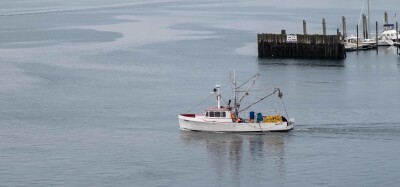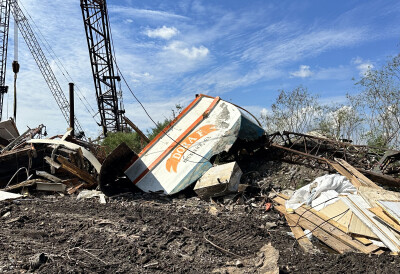Talking trash
By Jessica Hathaway
Call them discards. Call it bycatch. Whatever you call it, it’s possibly the dirtiest little secret in fishery management. Yes, management. Discards are a signpost of a mismanaged fishery.
Of course the best solution is to not have any bycatch. But what we do about bycatch in the meantime is what separates our system (as one of the best-managed fishing nations in the world) from Fishery Management 101: So You Wanna Be a First World Country?
Enforcing discards and shutting down fisheries at certain thresholds is for management greenhorns. Throwing away fish is no way to sustain fish. Shutting down fishing is no way to sustain a fishery. These are things you do in a moment of crisis, not as a matter of course.
Right now our federal managers want us to focus on observer coverage. There’s a lot of money to be spent on that. And what is the point? To get someone to keep close track of what’s going on aboard fishing boats. I guarantee you the captain knows. And many of them would be willing to contribute to data gathering as long as managers are making an effort to work with them. Threatening someone’s livelihood is not the best way to secure their cooperation.
They will also tell you how much of a waste it is to discard bycatch. And most fishermen will tell you their opinion on what gear type is really ruining things for everyone (and there’s no consensus on that topic). But I sincerely hope you don’t fall into that trap. Divided we fall. If you think no one will go after your gear, just wait.
Meanwhile, we have options for bycatch: allow boats to donate it to SeaShare or school lunch programs. That way we can actually track it. Observers need not apply. Simply make the accounting program anonymous. See where that gets you.
Then spend the money you are scrounging up for observer coverage and put it directly into gear research. Every single fishery could actually use that. Most of the significant marine science tools come from military projects — federally funded — and are adapted over time to be used by fishermen. Why can’t we put a fraction of that cost toward fishing-specific gear research? We talk a really good game about sustainable fishing. But the best way to be sustainable is to be selective, and we commit few resources to improving selectivity. Instead, our system says repeatedly, “Hey fishermen, can you just not fish for the stuff you can’t land?” That’s not helpful, and it’s not working.
We can solve bycatch problems with the right gear set the right way at the right time. But in most cases, we will need to work with fishermen to get the details just so. So what do you say, NOAA and NMFS? Can you work with us?








